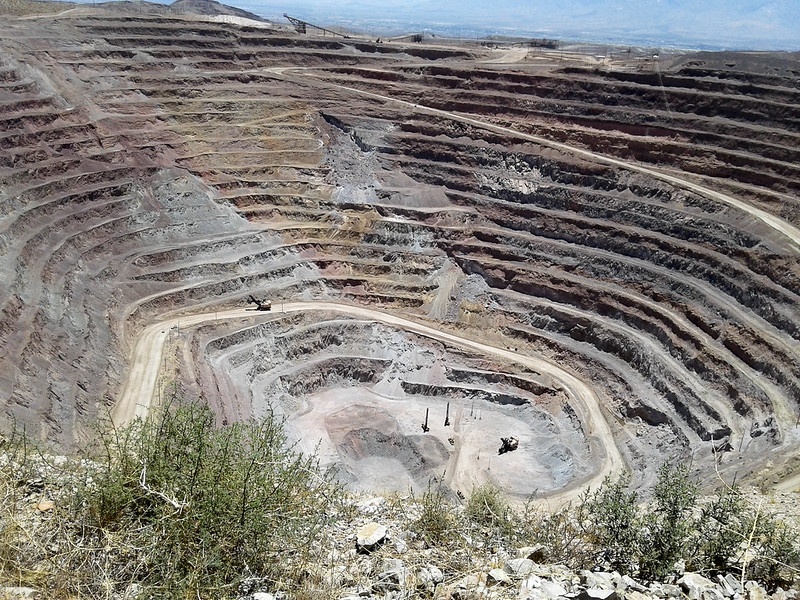Copper extraction project in Arizona aims to harness geothermal heating
 The Safford Mine Facility in Arizona (source: Los Angeles District USACE / flickr, Creative Commons)
The Safford Mine Facility in Arizona (source: Los Angeles District USACE / flickr, Creative Commons)
Freeport-McMoran will receive funding from the US DOE for a geothermal heating project for copper extraction in the Safford and Moreci sites in Arizona. International metals company Freeport-McMoran[1] is planning to integrate geothermal energy to provide clean heating for their copper extraction operations in the Moreci and Safford sites in Southeast Arizona, USA. In support of this initiative, the US Department of Energy has selected Freeport-McMoran to receive an USD 80 million grant through a cooperative agreement.
The project aims to generate clean, industrial-scale heat to enable the recovery over time of billions of pounds of residual copper through the company's Leach to the Last Drop initiative from already mined material previously considered unrecoverable. This could increase copper recovery by 25 million pounds or more annually, depending on the geothermal resources. The integration of microgrid and battery elements has also been proposed for the Morenci mine, adding reliability to the electrical distribution system and potentially the regional grid, and providing battery storage for backup during power outages.
The total cost of the project, including the geothermal and power grid elements is approximately £175 million, including the DOE contribution. The work is scheduled to take about five to seven years to complete. The project by Freeport-Mcmoran is one of five projects that were selected by the US DOE to receive up to £475 million in total funding to accelerate clean energy.
Others selected are in Pennsylvania, West Virginia, Kentucky and Nevada. The money is part of the bipartisan infrastructure law that passed in 2021.
Reduced emissions and increased efficiency
The geothermal project will enhance Freeport's Leach to the Last Drop efforts by providing a clean source of energy to add heat to the stockpiles. Leaching at higher temperatures is a demonstrated way of improving copper recovery.
When combined with microgrid technology and battery storage, the project will decrease the mines' reliance on onsite generators while reducing its greenhouse gas emissions. "We are finding new sources of copper that can be cleaner than what we've produced in the past in a way that's beneficial to the entire community and beneficial to what we're trying to do as a company - to bring more copper into the U.S. market to help facilitate the clean energy future," said Kathleen Quirk, President of Freeport-McMoRan. "This DOE partnership allows us to continue to build on this success, utilizing clean geothermal heat to drive further increased recovery of copper in alignment with our commitment to responsible production," added Cory Stevens, President, Freeport-McMoRan Mining Services.
Creating jobs and providing skills development
Part of the decision to award the grant to Freeport-McMoRan was the company's Community Benefits Plan.
Through the project, the company will create 121 construction and 12 full-time jobs at the operations. In addition, the company will continue strengthening its partnerships with high schools, technical and community colleges, and universities to help students access skills to help them participate in this project and other economic benefit opportunities. The company also will continue to provide 300 annual scholarships for Native Americans to help ensure access to clean energy and other quality jobs that may be indirectly spurred by this project.
The company also plans to increase investments in multiple new climate resilience projects.
Source: Freeport-McMoran[2]
References
- ^ Freeport-McMoran (www.fcx.com)
- ^ Freeport-McMoran (www.fcx.com)